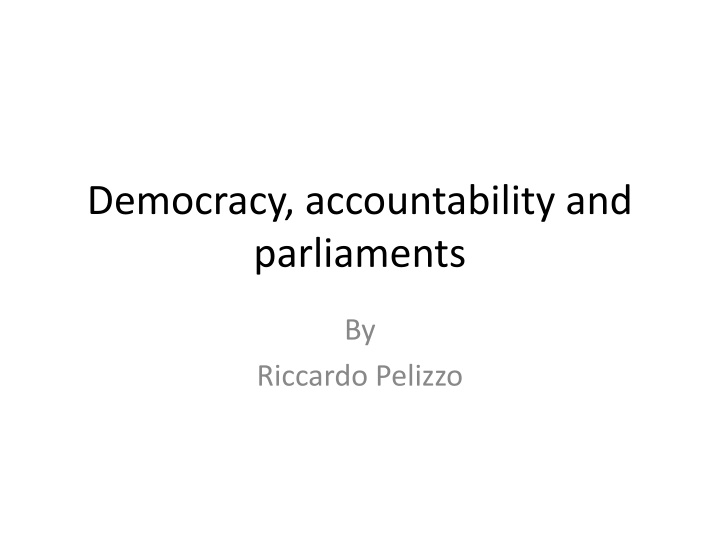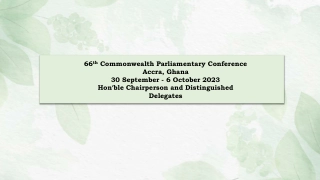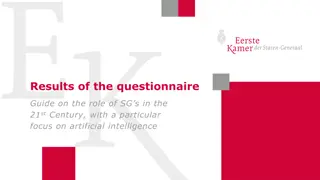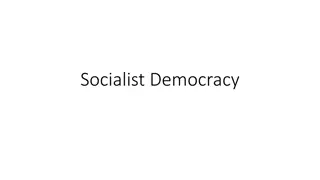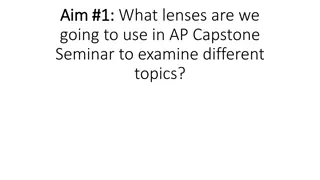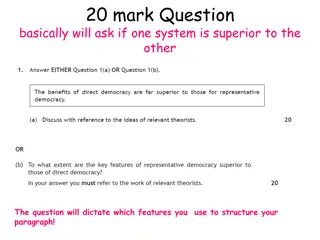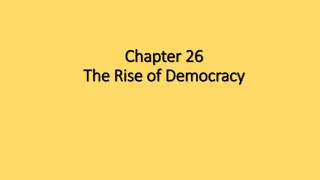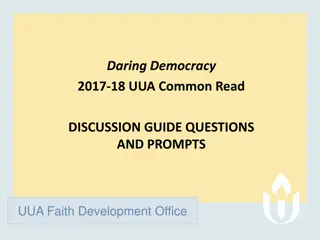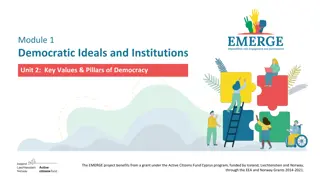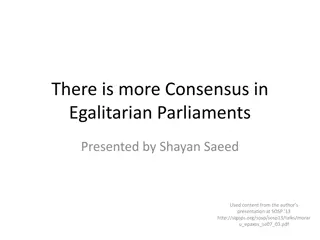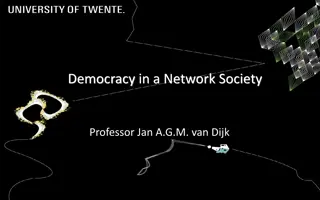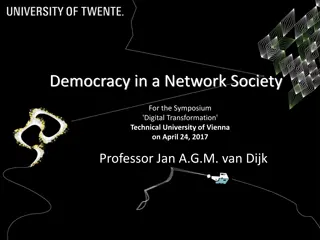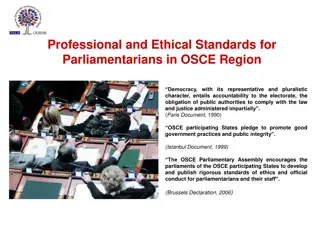Democracy, Accountability, and the Role of Parliaments
Explore the concepts of democracy, accountability, and the significance of parliaments in ensuring government transparency and citizen participation. Learn how factors like political culture, institutions, and legitimacy impact the durability of democratic systems. Discover the link between democracy's qualities and its legitimacy, as well as the crucial roles of rule of law, electoral accountability, and responsiveness in a democratic society.
Download Presentation

Please find below an Image/Link to download the presentation.
The content on the website is provided AS IS for your information and personal use only. It may not be sold, licensed, or shared on other websites without obtaining consent from the author.If you encounter any issues during the download, it is possible that the publisher has removed the file from their server.
You are allowed to download the files provided on this website for personal or commercial use, subject to the condition that they are used lawfully. All files are the property of their respective owners.
The content on the website is provided AS IS for your information and personal use only. It may not be sold, licensed, or shared on other websites without obtaining consent from the author.
E N D
Presentation Transcript
Democracy, accountability and parliaments By Riccardo Pelizzo
Democracy The literature on democracy has addressed 3 questions: What is democracy? What conditions facilitate a transition to democracy? What conditions ensure that democracy survives?
Democracy The duration and durability of democracy has been related to: Political culture Institutions (forms of government) Patterns of inter-party competition (political party system) Ethnic diversity Socio-economic development Legitimacy
democracy Recent studies (Morlino) have related the legitimacy of a democratic regime to the qualities of democracy These qualities concern the procedures, the content/output and the result/outcome of democracy
democracy Rule of law Electoral accountability Inter-institutional accountability Participation Competition Freedom Equality Responsiveness /legitimacy Procedures Content (outputs) Result (outcomes)
democracy In his analytical framework Morlino suggested that these qualities could constitute a funnel of causality such that: Responsiveness/legitimacy is function of freedom and equality, and Freedom and equality are a function of procedural characteristics of the democratic regime
democracy Rule of law Accountabilitie Responsiveness Freedom Equality Outcome s + Effective + + Responsible + + + Legitimate + + + Free + + + Egalitarian + + + + + Perfect
parliaments Parliaments can play a key role in keeping governments accountable They are one of the institutions to which governments have to account to They can help society and civil society groups to keep governments accountable They can provide society with the information it needs to make informed decisions at the ballot box
parliaments Therefore parliaments are key mechanisms of inter-institutional accountability and are instrumental in facilitating vertical, social and diagonal accountability Parliaments contribute to the establishment and the functioning of systems of accountability by performing their oversight function
parliaments While there are some differences between parliaments or legislatures across forms of government, all parliaments perform A representative function A legislative function An oversight function
parliaments Parliaments can employ various tools to oversee government activities and expenditures Questions Interpellations Committee Hearings Inquiry committees Specialized oversight committees Motions Missions Reports
parliaments Questions can be oral or written; they are generally submitted in writing; Written questions are answered in writing and are not debated Oral questions are answered and debated during Question Time Questions can be asked by individual MPs; they are the most commonly used oversight tools but they are not the most effective oversight tool
parliaments Interpellations are less common but more powerful oversight tool than question There are 3 differences between questions and interpellations 1) interpellations cannot be asked by individual MPs 2) while the question seeks information, the interpellation seeks an explanation/justification 3) may lead to government crisis in parliamentary systems and to a motion of censure in presidential systems
parliaments motions for debate can be used to scrutinize the implementation of government policies and activities
parliaments motions of censure are directed against individual government members, against the government as a whole or against the head of government. If successful they can have a whole range of consequences. In some countries (e.g., Burundi) they are simply put on record while in others (e.g., Liberia) they can lead to the dismissal of the head of government.
parliaments Committees are crucial for oversight: Committee hearings are, along qwith questions, the most common oversight tools and also are one of the most effective Some (standing) committees, such as PACs, have only an oversight mandate Inquiry committees are set up for a limited amount of time to conduct an specific inquiry
parliaments Missions are less common oversight tools In several countries (e.g., Benin, Burundi, Congo, Djibouti and Indonesia), fact-finding missions are carried out to gather the necessary information on the efficiency and the effectiveness of government policy implementation
parliaments In several countries (e.g., Cyprus, Djibouti and South Korea), specific provisions compel the executive branch of the government to submit regular reports to the legislature about the implementation of its policies and programs. It is not uncommon for such reports to be the subject of a debate in the plenary
A brief note on oversight effectiveness Oversight effectiveness promoted by: Range of mandate Resources available (human, financial, technical) Political will
Dividends of accountability Where oversight is performed more effectively, and/or where there is more accountability There is more political stability (less political violence) There is less corruption The quality of democracy is higher, and The percentage of citizens that are satisfied with democracy is higher
